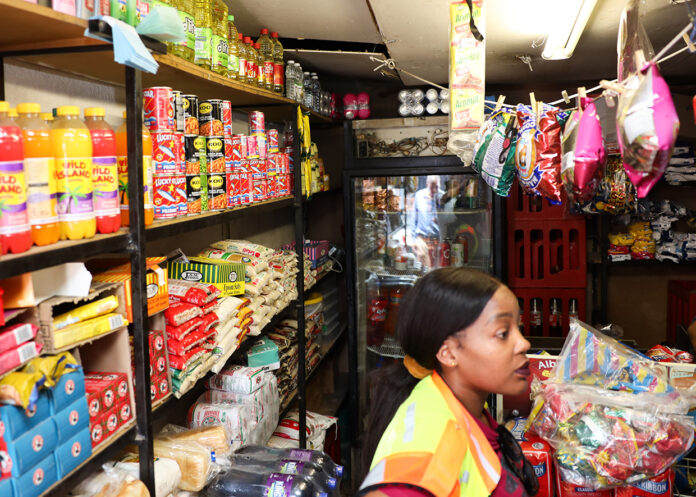Spaza shop owner Angel Mahlangu has been forced to use her hard-earned money to pay for refuse removal in front of her property due to the failure of the Bushbuckridge Local Municipality to provide services.
Mahlangu’s reputation for hygiene and freshness has won her loyal customers, especially schoolchildren, who arrive with coins in hand and cravings in their hearts. But in an area where residents go for months on end without water or refuse removal, running a business or a household is a challenge.
“When there’s no water, I have no choice but to keep the shop closed,” Mahlangu said.
Her frustration is shared across Bushbuckridge, a sprawling municipality in Mpumalanga province now mired in a financial crisis. The local government is owed more than R3.1-billion in unpaid service charges and property taxes.
A third of that, nearly R1-billion, is owed not by residents, but by government departments.
The Department of Public Works, Roads and Transport owes R675-million, while the Department of Rural Development and Land Reform owes R327.8-million, all in property rates, taxes and water.
The municipality said it had held several engagements and proposed repayment plans, but no tangible relief had followed.
Tersia Marshall, the DA’s political head in Bushbuckridge who blew the whistle on the debt, said the municipality was collapsing under the weight of government neglect.
Municipal spokesperson Fhumulani Thovhakale said: “We plan our budgets based on projected revenue. When the money doesn’t come in, we can’t deliver. “This is a humanitarian failure.
“Even in Thulamhashe, where Mpumalanga Premier Mandla Ndlovu comes from, residents report weeks without basic services,” said Freddy Mbhandze of the African People’s Convention.
According to the Mpumalanga provincial treasury, the municipality is owed R1-billion from households, R244-million from businesses, R886-million from NGOs and churches, and R996-million from government departments.
“This financial burden created by unpaid bills across the sectors severely limits the municipality’s ability to provide essential services and infrastructure to residents,” said treasury spokesperson Letshela Jonas.
Yet, for residents like Angel, these explanations mean little.
“What good is policy when your street smells like rotting food, and you can’t wash your hands?” she asked. “We don’t want politics. We want water.”



